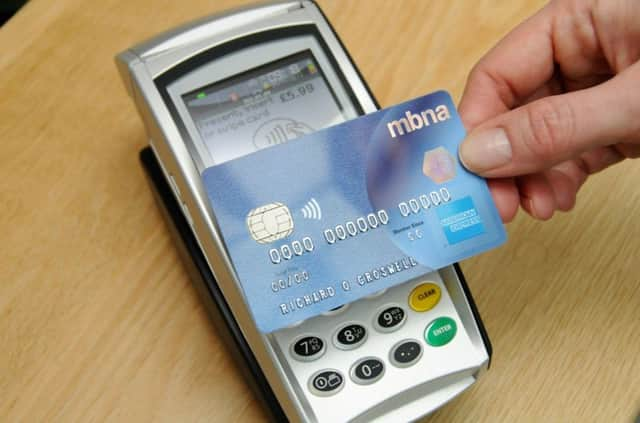Tech Talk: A big change for cash


Contactless payments, in which you swipe your card on a reader instead of entering a Pin now account for more than £2bn of purchases every year, and the figure is growing. Your existing debit card probably already works at contactless tills, and if it doesn’t there will be a replacement dropping through your letterbox before long.
The current limit for a single contactless payment is £20, but that will rise to £30 in September, and by then the system will be working at just about every high street multiple and on the London Underground.
Advertisement
Hide AdAdvertisement
Hide AdThe removal of Pin protection means that if you lose your card, a thief can use it for three or four purchases before the bank notices anything is amiss. If the thought of this puts you off, you’re out of luck: the banks doesn’t let you opt out.
If you have an iPhone 6 you won’t need your card at all from this month. Apple’s new payment system, to which almost everyone bar Barclays has signed up, means that debits can be made just by tapping the device on a card reader. An Android equivalent from Google is due in the autumn and it’s reckoned that seven out of ten current phones will be compatible with it.
If Barclaycard has its way we will soon be offered contactless “tap and pay” gloves , which, at the risk of making you look like an international jewel thief, will communicate with a sensor on the till and so do away with the need to rummage through your bags for a card.
“Wearable” payment systems like this have been taken to even further extremes by the Halifax, which has used some of our bailout money to develop wristbands with sensors. But British banks are light years behind the Americans when it comes to operating simple websites that can track your income and expenditure across multiple accounts. Mint.com was a runaway success across the pond when it launched, promising access to accounts at different financial institutions with a single click. In Britain, the response of many banks was to insert clauses threatening penalties for customers who tried to use any such service.